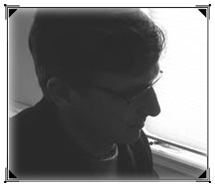This is a follow-up to my last post on Hands-On Winemaking. Last September I put up a post on my Westwood blog where I attempted to define my personal winegrowing philosophy as "Pre-Emptive Minimalism".
In a nutshell, following this approach means to 1) do nothing I don't have to, and 2)to do nothing that forces me to do extra work later. In the context of the last post I would call this "Interventionist Minimalism" in contrast to minimal intervention.
Friday, June 27, 2008
Subscribe to:
Post Comments (Atom)

2 comments:
In Oregon, Barney Watson teaches: do a little as you need to, but do as much as required based on as much data/info you can acquire (must, expirence, and sci. literature). I would say he also has a collary; try to anticipate where its going and correct earlier rather than later. As an engineer, I say: decide where you want to end up and develop a plan to get there using Barney's approach and follow it, but be ready for unanticipated results and correct as necessary to get back on track to reach the desired goal. I guess I would say I am as minimalist as I need to be to get to what I want the wine to be. I don't see additions as bad if it provides something of benefit to the final product. However, if there is a way to do it without additions, that is probably the preferable way to go unless it causes other unwanted additions to be made. It's all a balancing act to me, there's no one right way. All that matters is the result. If I fail, well I'll just have to drink the scrap. Darn. :)
I agree completely – especially with the "drinking the scrap" part ;-). I would'nt go so far as to say "the worst I ever had was good" but at least it had alcohol in it.
But seriously, deciding what – and what not – to add really is a balancing act. After 20 years I still sometimes get it wrong, but at least the magnitude of my errors and their consequences is less than it used to be.
Post a Comment